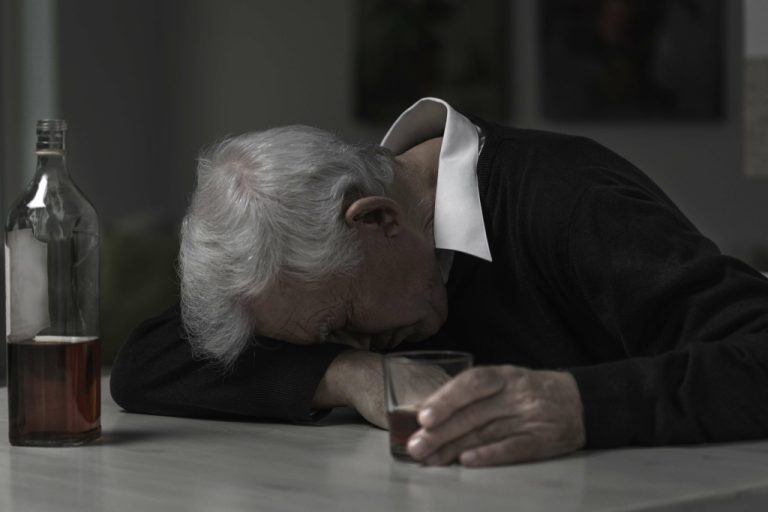Another limitation was the language barrier and the use of only the Persian and English articles in the literature. This means that recovery leads to changes, preserves the desired new lifestyle, and incorporates these factors into daily life. Meditation, a 2,600-year-old Buddhist https://inazifnani.com/baby-formula-recall-lawyer/ practice, is a formal component of step eleven. Along with other mindfulness practices, mediation has increasingly been incorporated into contemporary psychotherapeutic approaches such as dialectical behavior therapy (DBT) and acceptance and commitment therapy (ACT).
- Al-Anon is a mutual aid group commonly sought by families dealing with substance use in a loved one.
- That is because the brain is plastic and changes in response to experience—the capacity that underlies all learning.
- The NIH HEAL Initiative also partners with NIDA to fund research within the Consortium on Addiction Recovery Science, a nationwide effort that focuses on research network-building initiatives.
- A warning sign is when clients ask for professional help and consistently ignore the advice.
- Recovery is a continuous and turbulent attempt to maintain abstinence.
This does not account for those who may suffer from co-occurring mental illness that remains undiagnosed. By these estimates, at least 93.1% of disordered substance users remain either entirely untreated or partially treated in a manner that leaves them at high risk of relapse. Whether you seek help voluntarily or are forced by circumstances to enter rehab, your recovery process will begin with a professional treatment program. Experts believe that tackling the emotional residue of addiction—the guilt and shame—is fundamental to building a healthy life. It’s not possible to undo the damage that was done, but it is possible to build new sources of self-respect by acknowledging past harms, repairing relationships, and maintaining the commitment to recovery. Not only is addiction relapse common, relapse is not considered a sign of failure.
What Is Addiction Recovery?
Frequent feedback, encouragement, and support are vital, because physical and psychological resilience are still low, and the temptation is to give up and give in. Additionally, medications are used to help people detoxify from drugs, although detoxification is not the same as treatment and is not sufficient to help a person recover. Detoxification alone without subsequent treatment generally leads to resumption of drug use. Your condition may further complicate issues, especially if you try to go it alone.

Women for Sobriety focuses on the needs of women with any type of substance use problem. Brains are plastic—they adapt to experience—and people can change and grow, develop an array of strategies for coping with life’s challenges and stressors, find new means of satisfaction and reward, and negotiate life ahead. Millions of people do, whether they were once http://litena.ru/books/item/f00/s00/z0000043/st024.shtml compulsive users of opiates, alcohol, or gambling. Diagnosing drug addiction (substance use disorder) requires a thorough evaluation and often includes an assessment by a psychiatrist, a psychologist, or a licensed alcohol and drug counselor. Blood, urine or other lab tests are used to assess drug use, but they’re not a diagnostic test for addiction.
How repairing damage and building healthy connections improves recovery
Under all circumstances, recovery takes time because it is a process in which brain cells gradually recover the capacity to respond to natural sources of reward and restore control over the impulse to use. Another widely applied benchmark of recovery is the cessation of negative effects on oneself or any aspect of life. Many definitions of recovery include not only the return to personal health but participation in the http://modelico.ru/shop/?dir=422&pid=20542 roles and responsibilities of society. Relationships can be a source of support, or they can be stressors that threaten sobriety. It’s very common for loved ones to blame relationship distress on the addiction, and that idea is often reinforced by movies, recovery meetings, and even treatment providers. What about the ways that loved ones may be unintentionally making it more difficult for someone to stay sober?
Because setbacks are a natural part of life, resilience becomes a key component of recovery. Alcohol treatment and recovery is a lifelong process that requires commitment and changes in many aspects of a person’s life. These four stages of treatment can help people with alcohol use disorders learn about the benefits of recovery, find the motivation to change their behavior, and learn new skills that will help them succeed in the long term. A psychiatrist is a medical doctor who specializes in mental health, including substance use disorders.
The Benefits of Addiction Recovery
Some pertain to rates of use, while others pertain to rates of recovery. Generally speaking, one will find rates of use far more easily than rates of recovery. One problem with finding accurate drug and alcohol rehab statistics and success rates is that most information comes from surveys, and can only reflect the information that participants are willing to divulge. Learning to implement these strategies not only will help you remain sober, but you will also have the skills to become a healthier person, a better spouse and parent, a productive member of society, and a good neighbor and citizen.
This doesn’t treat SUD, but it’s an important first step toward recovery for the members who need it. Learned healthy coping was the fourth attribute of the theoretical phase of concept analysis. Overcoming dependence on substance use and coping with the issues it poses are an important aspect of recovery. Finding new and better ways to cope with the stressors of life by reaching out for help are important in the recovery experience.